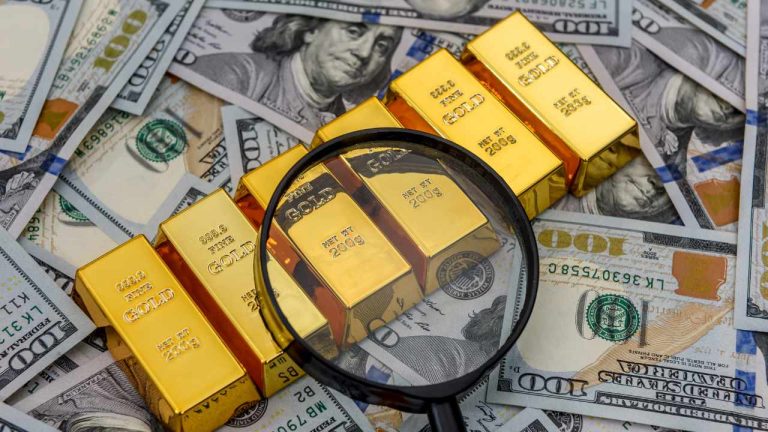Central Banks Show ‘a Lot More Pessimism’ About US Dollar, Survey Shows

The latest gold reserves survey by the World Gold Council shows that central banks are less optimistic about the future role of the U.S. dollar while their confidence in gold has risen. “There was basically a lot more pessimism about the U.S. dollar and a lot more optimism for gold,” said the council’s director of Central Banks and Public Policy.
Central Banks’ Confidence in US Dollar Drops
The World Gold Council (WGC) published the results of its 2023 Central Bank Gold Reserves Survey Tuesday.
“Following a historical high level of central bank gold buying, gold continues to be viewed favorably by central banks,” the gold industry body described, adding that 24% of central banks surveyed intend to increase their gold reserves holdings in the next 12 months. Last year, central banks bought a record 1,136 tons of gold. In contrast, the council noted:
Central banks’ views towards the future role of the U.S. dollar were more pessimistic than in previous surveys.
According to the survey findings, “46% of advanced economy respondents believe the U.S. dollar’s share of global reserves will fall” while 58% of respondents from emerging markets and developing economies (EMDE) expect it to do so, the council detailed.
Emerging-market central banks attributed their views to “shifts in global economic power” and gold being seen as a means of geopolitical diversification. On the other hand, developed economies cited environmental, social, and governance factors as the rationale behind their perspectives.
Central Banks’ Optimism in Gold Rises
The World Gold Council described that central banks’ “views towards gold’s future role grew more optimistic, with 62% saying that gold will have a greater share of total reserves compared to 46% last year.”
The WGC noted: “A majority of central banks expect a slight increase in the proportion of total reserves being denominated in gold over the next five years, with developing economies primarily driving this view.” The industry body added: “7 in 10 central banks surveyed believe that gold reserves will increase in the next 12 months. This is a 10-point increase from last year.”
Shaokai Fan, director for Central Banks and Public Policy at the World Gold Council, explained: “There’s been a major shift in how central banks perceive the dollar and the role of gold … Central banks move at a slow pace and last year’s events were a shock to everybody.” Noting that the optimism was not towards the Chinese yuan or the euro but toward gold, he stressed:
There was basically a lot more pessimism about the U.S. dollar and a lot more optimism for gold.
Central banks cited concerns over rising interest rates from key central banks like the Federal Reserve, geopolitical tensions from the Russia-Ukrainian war, and elevated inflation rates as the key drivers for their gold purchases last year. While the primary motivation for holding gold remained interest rate concerns this year, central banks are also worried about the stability of the U.S. banking sector, inflation, and possible future pandemics.
What do you think about central banks showing less confidence in the U.S. dollar? Let us know in the comments section below.